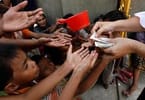The Federation of Indian Chambers of Commerce and Industry (FICCI) has come up with a list of recommendations on how to survive and revive travel and hospitality in the current COVID-19 pandemic world. Here’s what FICCI recommends.
In view of the current situation, the moratorium on all working capital, principal, interest payments, loans and overdrafts need to be extended by another 1 year.
RBI’s resolution framework: One-time rescheduling of principal and interest dues of borrowers in Hospitality Sector may be permitted in line with the revised estimated cash flows of each project. While the proposed capping of extension in repayment tenor is 2 years based on the assumptions on which the projections are made, if the situation does not improve as expected, a provision should be made to extend this to 3-4 years. Further, the requirement of additional provisioning should be linked to the tangible security available with lenders, viz., additional provisioning at ‘5%’ for Security Cover more than/equal to 1.5-Times.
Given the current situation and the future of the hospitality industry which will take long to revive, we request if banks can be mandated to reduce the interest rate of borrowing to between 7-8%.
In case of projects under implementation: The sudden nation-wide lock-down and subsequent migration of labor, etc. has seriously hindered on-going construction work of various projects. Therefore, considering for the locked-down period & the remobilization efforts, the Banks/FIs may be permitted to extend the DCCO by 1 year, without treating it as restructuring (in addition to the time period already allowed).
Stimulus package to stabilize and support the sector in the near term, including a workforce support fund to ensure that there are no job losses. Hospitality Sector being a large employment generator and worldwide, various governments are providing monetary support to the extent of 60-80% of salary expenses for the next 2-3 years as a special relief to keep retrenchments/job losses at lower side.
Lending to MSMEs in the Hospitality sector may be treated as ‘Priority Sector lending’, which will enable increased access to bank finance. GOI may consider supporting borrowers in the hospitality sector with payment/reimbursement of Six Month’s interest and providing 5% interest subventions for coming 2-3 years to ensure continuity in business operations/ survival of players in the Hospitality Sector.
Electricity and water to tourism & hospitality units should be charged at a subsidized rate and on actual consumption against fixed load.
The Service Exports from India Scheme (SEIS) scrips which is due to the tour operators for the financial year 2018-2019 must be paid at the earliest. This is only possible if the Government starts accepting the forms. This amount of SEIS will help all destination management companies in tiding over this crisis period with the much-needed working capital.
Restoration of SEIS scrips for duty credit of 10% to Tourism, Travel & Hospitality Industry.
Create a separate Tourism fund under the aegis of Ministry of Tourism to support the Hospitality and Travel Industry in this time of crisis. The fund should be accessible to the Industry as a collateral free 10-year loan. The first 2 years should be interest free and thereafter, a very minimum rate of interest should be applicable for the remaining 8 years. This will help businesses to stabilize till Tourism gets back on track.
Grant infrastructure status to all hotels to allow them to avail electricity, water, and land at industrial rates as well as better infrastructure lending rates with access to larger amounts of funds as external commercial borrowings. It will also make them eligible to borrow from India Infrastructure Financing Company Limited (IIFCL). This has been a long-standing request of the industry and in 2013, the Government granted infrastructure status only to new hotels with a project cost of more than Rs 200 crore each (excluding land costs). However, the status should be given across all hotels so that every hotel benefit from this status.
All Hotels should open – hotels have hosted Doctors, passengers returning on Vande Bharat flights and have followed all required protocols. So, they would be in a position to host the public as well. Allied services of Hotels like Restaurants, Spas, Bars should also open. Hotels should be given permission to host all kinds of banquets and conference in the hotel, with a ceiling of 50%of venue capacity and maintaining social distancing norm to allow hotels to earn some revenue when other source of business has dried up.
FICCI had also requested to create a separate Tourism fund under the aegis of Ministry of Tourism to help businesses to stabilize till Tourism gets back on track.
The Government should provide tax rebate of up to rupees 1.5 lakhs for spending on Domestic holidays in the lines of the Leave Travel Allowance (LTA).
A national tourism policy should be issued by the Ministry of Tourism, Government of India which covers common protocols for entry of a tourist into a state. This will act as a uniform guideline for all states to follow.
All the states and union territories should work in complete co-ordination with each other and the Centre under your leadership with a clear cut date to announce when they will open up the tourism activities so that this also gives time to the stakeholders to prepare themselves accordingly. The entry process and requirements for tourists to any state and union territory should be uniform and standard.
The states and union territories should have a targeted marketing campaign to communicate the safety measures taken by the Government at various tourist attractions and the private stakeholders to ensure the safety of the tourists when travelling to the destination This will help to educate tourists and build their confidence to travel for tourism purposes.
India should enter into a travel arrangement with Russia i.e. a travel bubble specifically between Russia and Goa, wherein people can fly in on a charter, stay in Goa and then fly back. Going by the number of Russians that come to Goa (almost 1.3 lakh in 2019-2020 out of the 2.1 lakh foreign arrivals) it would be a win-win situation for all as Goa has the hotel inventory as well as the flight inventory to cater to these tourists.
There are 11 Russian regions from where we get the maximum number of tourists and the bubble can be specifically between these regions and Goa. The 11 regions in Russia are Moscow, Kazan, Perm, Ekaterinburg, Ufa, Rostov, Samara, St Petersburg, Novosibirsk, Krasnodar and Krasnoyarsk.
There should be no quarantine, travelers should be required to bring with them a COVID-negative test report, which would be good enough for them to board the aircraft. We can also incentivize it either by granting free visa to the first 1,000 tourists or anybody who arrives between October and November will be offered visas free of cost.
If this travel bubble succeeds, it can be replicated in other parts of the country.
#rebuildingtravel
WHAT TO TAKE AWAY FROM THIS ARTICLE:
- While the proposed capping of extension in repayment tenor is 2 years based on the assumptions on which the projections are made, if the situation does not improve as expected, a provision should be made to extend this to 3-4 years.
- Hospitality Sector being a large employment generator and worldwide, various governments are providing monetary support to the extent of 60-80% of salary expenses for the next 2-3 years as a special relief to keep retrenchments/job losses at lower side.
- Given the current situation and the future of the hospitality industry which will take long to revive, we request if banks can be mandated to reduce the interest rate of borrowing to between 7-8%.






















